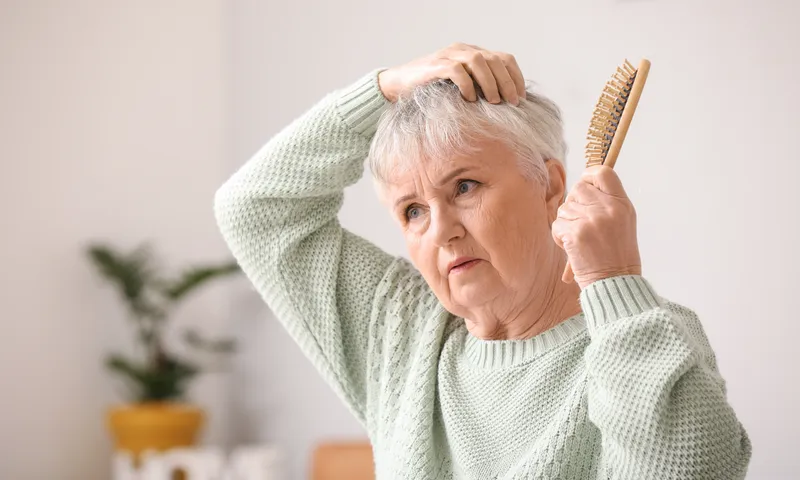Can Rheumatoid Arthritis Cause Hair Loss

Dealing with an autoimmune disease such as rheumatoid arthritis (RA) is known for causing painful, swollen joints, but its effects can reach beyond mobility and comfort. Many people living with RA also notice unexpected changes like fatigue, fluctuations with weight, mood and energy, but what about external physical features? This raises a common question: can rheumatoid arthritis cause hair loss? The short answer is yes, but the reasons why may not be as straightforward as you think.
The Connection Between RA and Hair Loss
RA is an autoimmune disease, which means the immune system mistakenly attacks the body’s own tissues. While joints are the main target, inflammation can ripple out into other areas, including the hair follicles. Healthy hair growth depends on consistent cycles of growth and rest. When inflammation is high, it can interrupt those cycles and lead to more noticeable shedding. Over time, this may make hair appear thinner, even if the condition is being managed.
On top of that, RA often requires long-term medications to keep symptoms under control. Certain drugs, particularly methotrexate, are linked to hair thinning as a side effect. This doesn't happen to everyone, but for those who do experience it, the change can feel discouraging. Corticosteroids, sometimes prescribed for RA flares can also contribute to temporary hair shedding when doses are adjusted.
Other Contributing Factors
It’s not always RA or medication alone that causes the problem. Living with chronic illness can bring stress, which has a well-documented link to hair shedding. Nutritional deficiencies, like low iron, folate, or vitamin D, are more common in people with RA and can also contribute. Some patients with RA develop anemia, which reduces oxygen delivery to tissues and may affect hair health. Thyroid problems, which are more frequent in autoimmune conditions, add another layer of complexity since they’re also linked to hair loss.
Does Rheumatoid Arthritis Cause Hair Loss Permanently?
In most cases, hair loss linked to RA is not permanent. Adjusting medications, improving nutrition, and managing inflammation can help slow or reverse shedding. Some people notice regrowth once treatment is balanced and inflammation is under better control. Still, it’s important to bring up any changes with your doctor rather than assuming “it’s just part of RA.”
What You Can Do
If you’re dealing with hair loss alongside RA, it’s worth mentioning it to your doctor. They may run blood tests to check for anemia or thyroid issues, or review your medications to see if adjustments can help. A diet rich in nutrients, staying on top of inflammation, and reducing stress wherever possible may all play a role in improving hair health. In some cases, dermatologists can recommend topical treatments or other options to encourage regrowth.
Bottom Line
Whether hair loss from RA is caused by inflammation itself, the medications used to manage it, or related health factors, there may be ways to reverse the effects. With medical guidance, many people see improvement over time. If you’re experiencing hair loss along with RA symptoms, talk to your doctor about possible causes and solutions.
IMPORTANT NOTE: The above information is intended to increase awareness of health information and does not suggest treatment or diagnosis. This information is not a substitute for individual medical attention and should not be construed to indicate that use of the drug is safe, appropriate, or effective for you. See your health care professional for medical advice and treatment.


